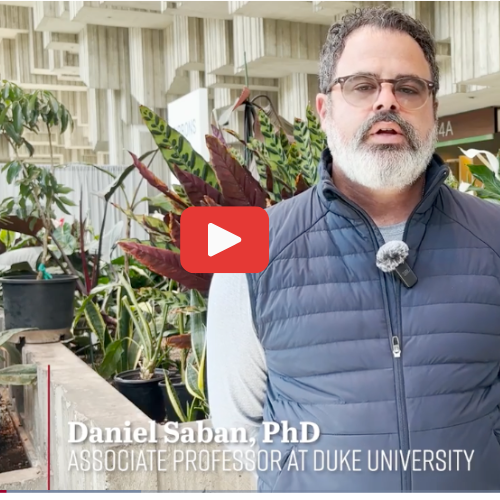The Saban Lab is Bridging Immunology and Neuroscience
The human immune system and nervous system, two complex networks, are intricately linked. The Saban Lab is dedicated to understanding how this partnership shapes our health and well-being. We believe that uncovering the secrets of this neuroimmune connection holds the key to preventing and treating a wide range of diseases.
To explore this complex relationship, we use the eye as a powerful model system. It's like a window into the brain, as well as the periphery, allowing us to observe and manipulate immune cells and neurons in real-time. By studying how these cells interact in the eye, we gain valuable insights into how they function throughout the body.
Our research workflow starts with a deep dive into genomic data, searching for hidden clues about how the immune and nervous systems communicate. Once we identify a promising target, we carefully investigate its role in health and disease. This knowledge empowers us to develop innovative therapies that can restore balance and prevent disease progression.
A prime example of our work is our focus on microglia, specialized immune cells in the brain. We use the retina as a window into the central nervous system, allowing us to study microglia in vivo. We've made significant strides in understanding how these cells contribute to both healthy vision and blinding eye diseases. Our research has led to the development of a promising drug that targets microglia to potentially save sight in patients with inherited and age-related retinal degenerative disease.
Another area of our research focuses on the cornea, the clear front part of the eye. This remarkable tissue is packed with nerves and is constantly interacting with the immune system. By studying the cornea, we're unraveling the complex interplay between nerves and immune cells, which has implications for understanding pain, wound healing, and other conditions.
The eye also offers a unique perspective on mucosal immunity. The conjunctiva, a thin tissue lining the eyelid and white part of the eye, is a readily accessible model of mucosal surfaces found throughout the body, such as the lungs and gut. By studying the conjunctiva, we can gain insights into how the immune system responds to infections and inflammation in these vital tissues.
We are actively seeking collaborations with researchers in immunology, neuroscience, ophthalmology, bioinformatics and related fields to advance our understanding of neuroimmunology. We invite talented and motivated individuals to join our team as postdoctoral fellows, graduate students, or research technicians. Together, we can make a significant impact on human health.
Daniel R. Saban, PhD is the recipient of the 2024 Cogan Award, presented by the Association for Research in Vision and Ophthalmology (ARVO). This prestigious award recognizes young researchers that have made significant contributions to research in ophthalmology or visual science, and that show substantial promise for future contributions in this field.
Cogan Award Presentation and Lecture
Support Saban's Inflammation and Eye Disease Research
Your support is crucial to our mission. By investing in our research, you are helping to fund groundbreaking discoveries that have the potential to transform lives. Your generosity will enable us to recruit top talent, acquire state-of-the-art equipment, and accelerate the development of new therapies.
